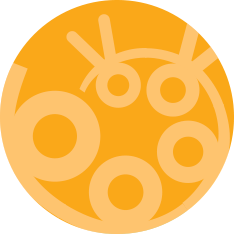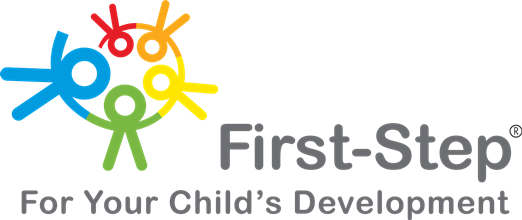
0-3 Months
First Step workshops – From Birth to 3 months
Even as an embryo, your baby’s preparing for life. While still in the womb, babies are improving their sense of balance, strengthening their muscles, learning, and developing their senses. All this creates a basis for their future learning. And once baby is truly ready in terms of skills, that’s when birth should start.
But it doesn’t always happen like this. In many cases, while a newborn appears physically mature, his nervous system may not have matured fully. Even after a regular 40-week pregnancy, a baby can be born with deficits in the sensory and motoric system, visible only to professionals. Many babies still need a “womb-like environment” after entering the world.
Development of the nervous system has to be fully completed, and the new “womb-like environment” is….the mother. Maternal (and parental) behavior can provide newborns with an environment resembling life in the womb – helping the deep functions complete the maturity process.
Our workshops target this early stage of the infant’s life. They help mothers create that “womb-like environment” which babies need to conclude development and make a gradual transition from the womb to the outside world.
First Step offers unique exercises and development accessories, plus the understanding and information that helps you grant your baby the proper support that’s vital at this critical stage.
Throughout the process, there’s constant support for mothers – who also need a kind of womb-like environment, a gentle, pleasant and accepting place to help cope with their dramatically changed life.
How can we create a sense of security for the newborn?
In the first months, babies are influenced by various reflexes, the main of which is the Moro reflex. It comes into play when the baby feels s/he is falling or is not being held securely enough, and it stems from a sense of anxiety.
When babies have been lying for long periods on their back, are exposed to many external stimuli, or inexperienced parents who worry about holding baby – the Moro reflex is often activated.
The visible result is a nervous baby who cries more and is anxious. Most parents are unaware that the reflex is a response to prolonged lying on the back, or the baby’s being held incorrectly (we’re often asked “what’s there to learn about holding a baby?!”). Nevertheless, learning the right, safe way to cradle your baby, helps baby feel calm, replacing nervousness and anxiety.
Coping with parental anxiety
In babies, the Moro reflex is linked to parental anxiety. First-time parents often feel paralyzing anxiety – but it can be resolved.
At the First Step center, parents brought their seven-month-old baby for diagnosis. The parents reported she wasn’t rolling over or stretching her arms. Right away we noticed she wasn’t creating eye contact, her mother found it hard to hold her and seemed stressed. When we demonstrated different ways of communicating with her baby, she was surprised to see her daughter stretching her arms out to her – and smiling. “I’m a serious woman” she admitted, “I can manage adults well, but I simply find it hard to talk goo-goo ga-ga with the baby”.
During the process, it turned out that the mother felt constantly tense around her daughter, and wasn’t communicating with her properly. A few sessions later, the mother relaxed … and the baby’s developmental process became more balanced.
Normal anxieties during infancy should be dealt with quickly – preferably during baby’s first three months.
At the First Step workshop, you’ll get valuable information and exercises that help reduce anxiety reflected in questions like “What do we do now?” or “How do we cope?” and you’ll enjoy individual support for your parenting role.
Enjoying your baby
Another important topic at the newborn infants workshop is how to enjoy your baby…which initially seems like an unusual question.
It’s a fact though that in the early months, most parents – especially first-timers – find it a tough job to enjoy the baby and parenting.
Birth triggers many anxieties and fears over how to act with the baby, and the slew of new daily tasks makes it harder to truly enjoy the newcomer. New mothers tell us “All I want to do is sleep…and that’s a terrible feeling”.
Poor access to information is also to blame. We don’t learn parenting in school, so we tend to raise children alone, and first-time parents simply don’t have the experience.
Attending a workshop equips you with confidence-boosting tools and exercises: mothers learn what to do, and how to communicate with baby.
Once parents have learnt how to create a soothing environment, they’ll sleep sounder and longer – increasing parental enjoyment. Another benefit is that you’ll meet other parents at the same stage, in a relaxed social experience where parents share dilemmas.
Your child’s first developmental foundation
The first three months create a foundation for life, and if it’s an unstable period, the motoric sensory system will not have a solid foundation.
When working with toddlers and adults using Feldenkrais and other methods, we often identify the “repairs” that children and adults must make, to compensate for developmental deficits in infancy.
For example: a four-year-old boy came with his parents for a diagnosis. They said he was a “restless” child. Though sociable and intelligent, he played with his tongue, walked on tiptoes a lot, and was indeed restless. The First Step approach holds that all phenomena are inter-connected and derive from the first months of life. For example, walking on tiptoes begins by arching the back, as a result of prolonged lying on the back in the crib.
Restlessness is also related to situations when babies are not cradled and held enough to feel physically relaxed.
His mother said that their son wasn’t cradled enough, and even when he was – tended to fuss without a pacifier.
How would we have prevented that problem if we had seen him at 0–3 months? We believe that there are laws of child development that are common to all children, and if the baby experiences each stage according to the “game-plan”, most problems are preventable. First Step suggests what parents can do so that – from the very start – babies enjoy the optimal environment for development, and acquire everything they need for future tasks as an adult.
Without “modern life” there would be no need for parenting workshops and classes. But – with all its advantages – the modern world has led us to incorrect forms of parenting (like laying infants on their back in strollers for hours). Because we’re all part of that culture, generally we don’t notice what’s wrong. We brush it aside – we think, well, lots of kids are overweight or can’t climb; so many children have learning disorders, or attention and concentration deficits, and adults have forgotten how to sit quietly for long periods.
It may seem “normal”, but it isn’t.
The First Step method repairs imbalances…and it’s important to start early.
Practical tools and exercises
It takes time to form a relationship with baby and sense what she’s feeling. But when there’s a toolbox packed with practical tools that respond to baby’s fundamental needs, even when parental instincts are not yet perfect. And the know-how that built those tools isn’t connected with baby’s temperament or character – it’s based on clear codes that you can learn.
Exercises at the workshop help inexperienced parents raise their first-born as if s/he was their third child. Practical and simple, they are the result of joint work with scores of mothers and babies. When mothers use them, a relaxed parenting experience starts taking shape.
Among the topics discussed at the workshop:
· How do we use a baby-carrying sling? Which type is recommended?
· How can we help colicky babies?
· What soothes babies? Which are the best techniques to use?
· What baby accessories should we use, and when?
· Which sort of communication do babies need at this stage?
